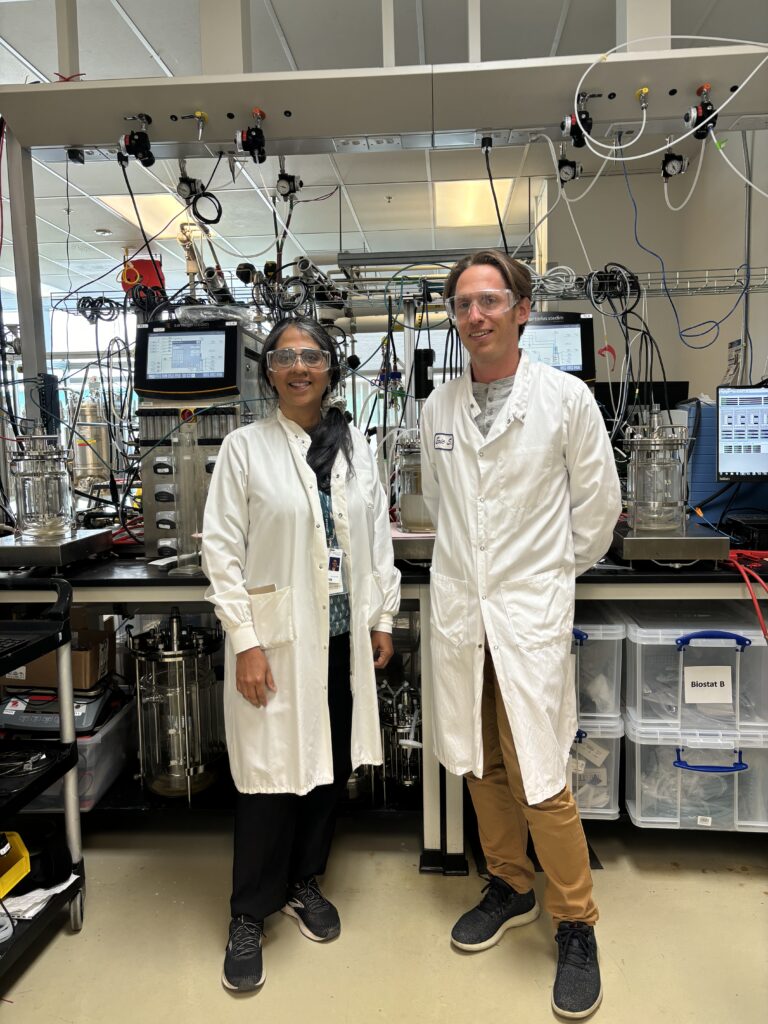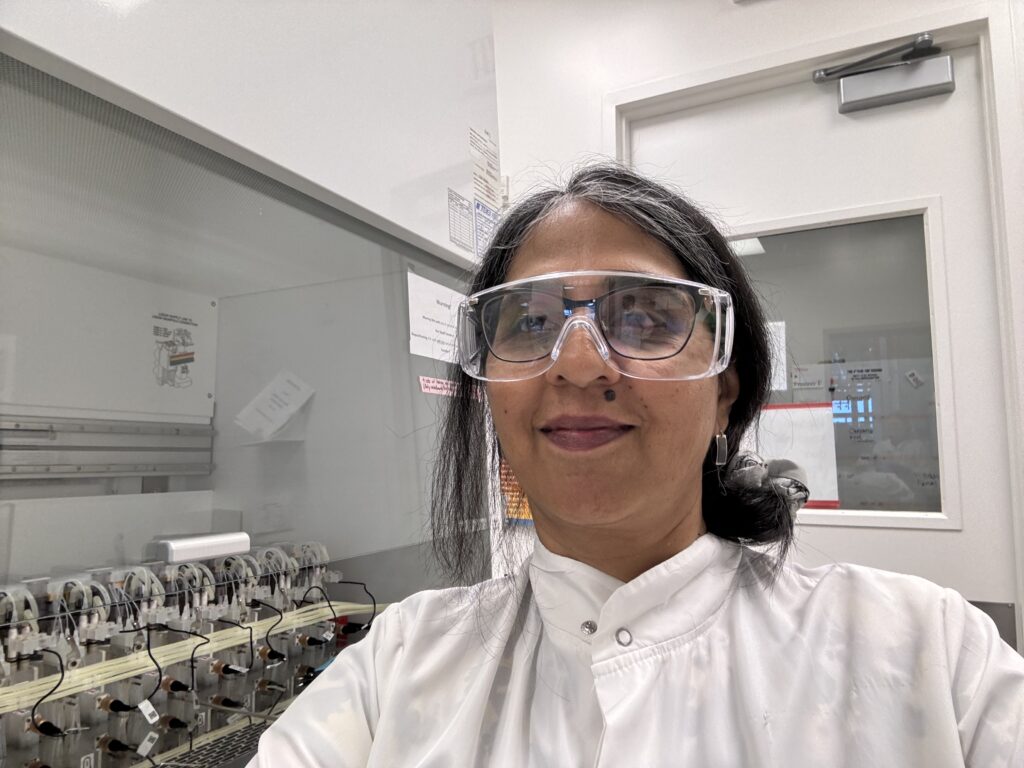Sheela Vemu is an Associate Professor of Biology at Waubonsee Community College. She spent this past summer at ABPDU developing a biomanufacturing curriculum as part of the U.S. Department of Energy’s Visiting Faculty Program.
Tell us about yourself and what brought you to ABPDU.
I am an Associate Professor of Biology at Waubonsee Community College in Sugar Grove, IL, a Hispanic Serving Institution with a significant number of first-generation college students and students from rural communities. Illinois has seen a lot of recent activity in biomanufacturing, and I started to notice that many employers in the area were looking for candidates who were skilled in operating bioreactors. I realized that if students knew how to operate a bioreactor, they would be able to pursue careers in a variety of different fields, such as wastewater treatment, food and beverage manufacturing, and industrial biomanufacturing.
With my college recently acquiring a bioreactor, I wanted to create a curriculum that could help address the critical need for a skilled workforce in the bioeconomy. I needed to first understand the foundational concepts involved in operating a bioreactor and what factors influence fermentation. I thought ABPDU would be the best place for me to do that.
What did your work at ABPDU entail?
As a part of the Visiting Faculty Program, I spent 10 weeks at ABPDU under the guidance of Eric Sundstrom and James Gardner developing curricular modules for industrial biomanufacturing that can be incorporated into community college education. I spent a lot of time with researchers at ABPDU receiving hands-on training that helped me understand the ins and outs of bioreactor operation, assembly, and troubleshooting.
I also had conversations with representatives from several companies, community colleges and nonprofit organizations in the Bay Area and Central Valley who are working in the biomanufacturing space. This included meeting with BEAM Circular, an organization that is working on creating an ecosystem for the circular bioeconomy in California’s North San Joaquin Valley and is collaborating with ABPDU as part of the Circular Bioeconomy Innovation Collaborative. Conversations like these helped me tailor the modules to current industry needs and future trends in biomanufacturing.
The modules I developed provide the technical and practical foundation that students need to operate a bioreactor. My goal is to make these modules available as an Open Educational Resource so they can be adopted by the broader community college ecosystem and have an impact on workforce development for the bioeconomy. ABPDU has made several video Safe Operating Protocols (SOPs) of their equipment that are made available on ABPDU’s YouTube channel.
Coming into this program, I really wanted to be in an immersive environment, and I can definitely say I achieved that by coming to ABPDU. I haven’t had such a collaborative experience since I was a postdoctoral researcher. Everyone did their part to make me feel welcome and to help me out in some way, whether it was sending me resources or letting me observe their work in the lab. As a scientist, I’ve worked on many teams, but none like the one at ABPDU.
This experience overall has opened my eyes to what’s going on in the field of biomanufacturing. I’m excited to be able to take what I’ve learned directly to my students.
What role will community colleges play in the future of biomanufacturing?
I believe community colleges can help us achieve many of the workforce development goals that have been cited as necessary to scale up the bioeconomy. Community colleges are nimble — they can provide specialized, hands-on training that’s closely aligned with industry needs.
It’s easy for community colleges to adapt their curriculum if those industry needs change. In addition, community colleges provide cost-effective, flexible education. That allows us to serve underserved and underrepresented communities, veterans, and rural populations.
I feel that community colleges are the workforce engine. They’re an important piece of the pathway and will play a role in creating the skilled technical workers that the bioeconomy needs.



